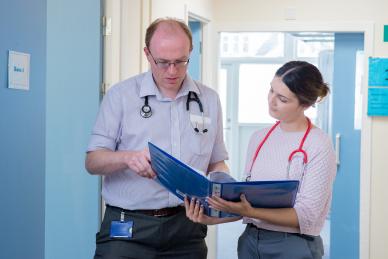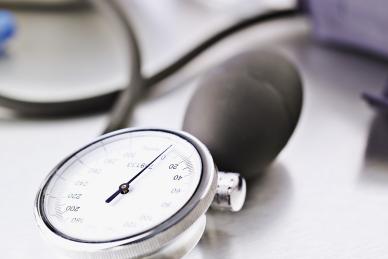Join the College
The College is here to support you at all stages throughout your career to enable you to deliver the highest standards of healthcare to patients.
Empowering medical excellence, shaping healthcare futures.
Even if a trainee is in a specialty that can train without GIM, having it is an advantage in a competitive job market
GIM is incredibly rewarding, the range of illness that the clinician gets to see is large
Spending three to five years as a Medical Registrar really improves team-working, leadership, teaching and time management skills. Being a Medical Registrar, although daunting at first, is great fun
The downside is that being a Medical Registrar can be daunting at first, the rotas can be tiring and it can feel as though the whole hospital wants a bit of you
People tell you that they don’t want to be Medical Registrar because of how busy it is. I would not let this put you off
Dr Mark Taylor - ST7.
"The sheer range of presentations that fall within the specialty’s remit offers the clinical challenge and variety."

It sort of came with my main specialty, but having been through the system I would have chosen to do GIM if I had been made to make a conscious decision to apply for dual specialty training. The sheer range of presentations that fall within the specialty’s remit offers the clinical challenge and variety.
Most people get into this specialty automatically when they apply for their main specialty. Take opportunities to see and do as much as you can during Core Training. Start working on your MRCP early. Make sure you do some audit work and get involved with teaching.
At the start of a ‘Medical Registrar’ shift there is a handover meeting. The night team passes on information about sick patients, patients waiting to be clerked and jobs outstanding. The night Medical Registrar hands over the bleep(s) and leaves. I join the post-take round, but am soon disturbed by the bleep going off. This time it is a patient on a surgical ward, who can be managed with telephone advice only. As I am suggesting a management plan the bleep goes off and there is a sick patient in Accident and Emergency (A&E). He has chronic obstructive pulmonary disease (COPD) and needs non-invasive ventilation (NIV). While sorting this out I am called by one of the Senior House Officers (SHO). A patient needs a lumbar puncture and the SHO needs to be supervised. My bleep goes off again for a sick patient on a surgical ward, the lumbar puncture will have to wait for now.
The day continues in this vein, juggling jobs, prioritising, keeping an eye on how the rest of the on-call team are doing, rushing from one part of the hospital to another. Time passes quickly and I am lucky enough to see the most interesting (and sick!) patients in the hospital. After 12 hours it is time for the handover to the night team. I apologise for the number of patients waiting to be clerked and for the fact some of the less urgent jobs on my list are over six hours old (the result of my continual reprioritising). The night Registrar tells me not to worry, he knows that he will have similar lists to handover in the future.
Being Medical Registrar on-call can be great fun, although tiring, and sometimes stressful. It tests your knowledge and clinical skills. Time management skills are essential and leadership skills rapidly develop. Looking back at a busy shift is incredibly rewarding.



The day-to-day medical problems that any hospital doctor should not be too surprised to see.
Training in GIM, although a specialty in its own right (and as far as collecting evidence for training should definitely be seen as such) is usually obtained in parallel (at the same time) as a trainee’s ‘main’ specialty (in my case geriatrics). Trainees are expected to gain experience in a wide range of emergency and common medical presentations, in a range of locations (Acute Medical Units, Wards, Outpatients). Experiences gained within a trainee’s chosen specialty complement those obtained while on-call (and sometimes in additional clinics) over at least three out of the five years (usually) of Higher Specialist Training.
No additional examination is required for GIM; the MRCP(UK) obtained during Core Training is all that is required.
If trainees do out of programme research (OOPR), this is usually in their ‘main’ specialty. It is possible, with careful planning and the agreement of the Training Programme Director, to count some clinical work during this time towards GIM training.

The College is here to support you at all stages throughout your career to enable you to deliver the highest standards of healthcare to patients.